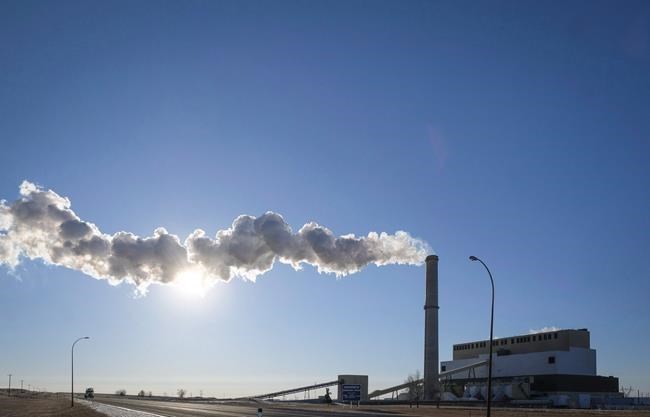ROCKY MOUNTAIN HOUSE, Alta. — A town council in Alberta Environment Minister Jason Nixon's backyard wants broader consultation over the government's plans for open-pit coal mining in the Rocky Mountains.
On Tuesday, the community of Rocky Mountain House voted to send a letter to the United Conservative government asking for a more extensive evaluation of its proposal to dramatically expand the industry. Talks would go far beyond what has so far been offered.
"I would like to see us have extensive consultations with the public, First Nations and industry," Mayor Tammy Burke told council in the largest municipality of Nixon's constituency.
The letter asks that there be input on land disruption, water quality, air quality and health effects on humans and wildlife. It asks for a cost-benefit analysis that would consider employment in the industry, economic revenue, effect on tourism and potential recreational development.
The province has begun a public consultation on coal mines, which would export steelmaking coal to largely Asian markets. The panel leading the dialogue is only allowed to consider concerns that fall under the Department of Energy, which automatically rules out most of the issues Rocky Mountain House is concerned about.
"I believe in responsible resource development," said Coun. Merrin Fraser. "The steps that have been taken to prevent consultation on land and water use are not responsible.
"Risking the health and future of our land for a volatile Chinese market ... I'm just not sure that that is a responsible financial decision.
Nixon's office did not respond to a request for comment on Rocky Mountain House's concerns.
Last spring, the government revoked a policy that had protected the summits and eastern slopes of the Rockies since 1976. Public pressure eventually forced Energy Minister Sonya Savage to reinstate the policy, but she did not take back coal leases on thousands of hectares sold in the meantime.
More than two dozen municipalities and six First Nations have expressed some level of concern about expanded mining in the region, which is renowned for its beauty and is the source of most of Alberta's drinking water.
Those communities include Clearwater County, the district that comprises the bulk of Nixon's constituency.
Nixon has suggested no further consultations will be required. Asked at a meeting of the Alberta Urban Municipalities Association last week about the possibility of a second, environmentally focused set of talks, Nixon pointed to the province's current regulations and implied they are adequate to deal with new coal mines.
In an interview, Burke said council has received more than 50 letters on the issue.
"We just want to make sure that everybody that wants a say in this, has a say in this," she said. "It doesn't sound like people are happy with the consultations that are taking place."
Town council does acknowledge the economic benefits a coal mine could bring.
"This is a large economic item for us, so we can't just dismiss those economic benefits," said Coun. Len Phillips. "I think there's a way of having both."
Fraser questioned whether the province can ensure mining on the landscape would be environmentally benign.
"I feel like we're being (told) by the UCP, 'Trust us. We've got it under control,'" she said.
"But we have evidence time and time again where the government has failed to intervene, failed to apply their own regulations, failed to step in where that is their responsibility."
Government data shows Alberta Environment knew for years about high levels of contaminants from coal mines in at least three rivers and failed to act. Monitoring stations on those rivers were cut instead.
More recently, satellite imagery has shown that permitted road density from coal exploration is already higher than legal limits.
This report by The Canadian Press was first published April 21, 2021.
— By Bob Weber in Edmonton. Follow @row1960 on Twitter
The Canadian Press



